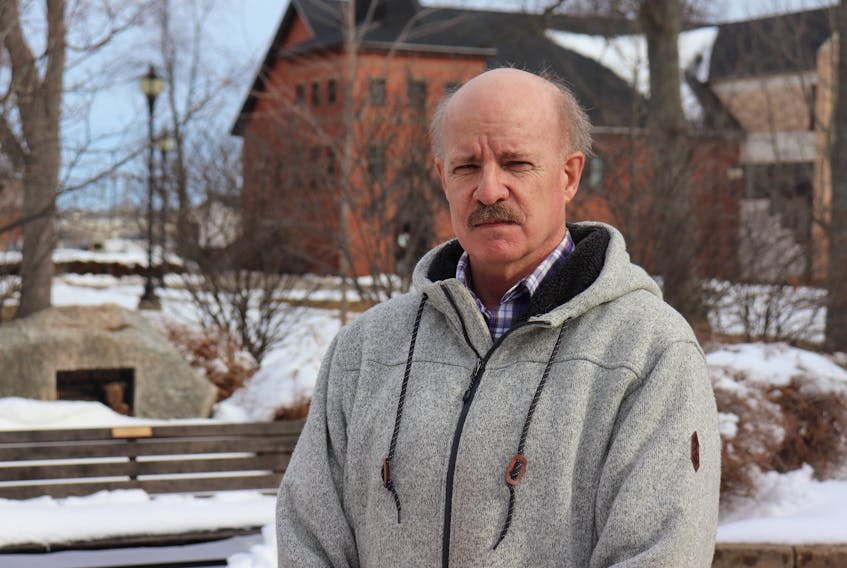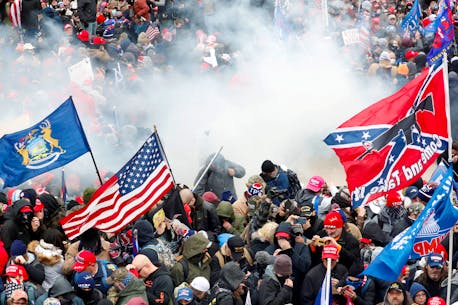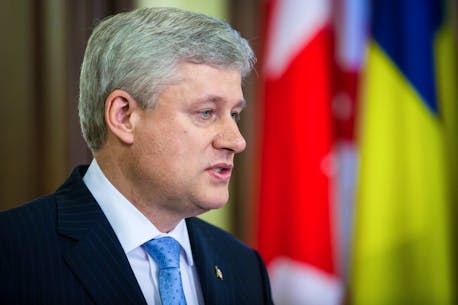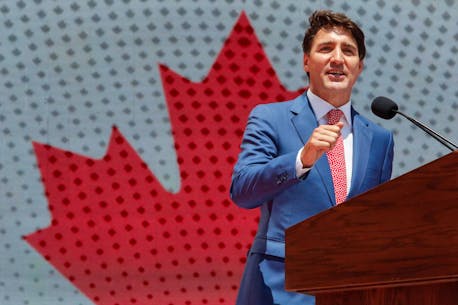CHARLOTTETOWN, P.E.I. — All prime ministers use foreign policy to push their agenda at home, but Stephen Harper took that politicization to a whole new level between 2006 and 2015. And it did Canada no favours on the world stage.
That’s the argument behind a new book on the political aspects of Stephen Harper’s foreign policy, edited by Peter McKenna, UPEI political science chair.
Harper’s World: The Politicization of Canadian Foreign Policy, 2006-2015, is a compilation of academic sources from across Canada that looks back on the way Harper used and abused diplomacy to score points with voters.
“The thrust of the book is looking at how Harper politicized Canadian foreign policy — in other words, how Harper viewed the utilization of Canadian foreign policy as a means to secure re-election,” McKenna said.
The book argues Harper used global issues as part of his so-called permanent campaign strategy.
“Harper was someone who, 24 hours a day, thought about politics. … Every day was part of an election campaign strategy that never ended,” McKenna said.
Some of this strategy was a result of leading fragile minority governments in his first two terms. But Harper was also pushing for the Conservatives to replace the Liberals as Canada’s “natural governing party”, McKenna said.
McKenna offered a couple of examples showing how Harper targeted demographics that hadn’t previously been Conservative voters.
Israel is one example, where Harper took a strong pro-Israel stance to win over Jewish voters, McKenna said.
“Harper was someone who, 24 hours a day, thought about politics. Every day was part of an election campaign strategy that never ended.”
- Peter McKenna
Another example is support for Ukraine and Harper’s tough line on Russia.
“There’s 1.3 million Ukrainians in Canada. Most of them reside in the West. So, he was clearly trying to take a policy stance that he knew would resonate.”
Neighbours
With the United States next door to Canada, every prime minister’s foreign policy involves working alongside this powerful neighbour.
Duane Bratt, a political science professor at Mount Royal University in Calgary who contributed to Harper's World, says the Canada-U.S. relationship under Harper was tense – and political.

Issues started early despite intentions to work closely with the U.S. Harper supported the Iraq War while in Opposition, only to come out against the war when he became prime minister, Bratt said.
“By 2006, it was clear that the war was a mistake. And Harper had to pretend that he had never argued for the war in Canada.”
Things continued trending this way in 2008, with Harper calling the decision to allow the Keystone Pipeline a “no brainer”. President Barack Obama took this as a personal slight, but Harper still won favour with voters living in oil-producing areas of Canada.
At a glance
- Stephen Harper was prime minister of Canada from 2006 to 2015.
- He led the Conservative Party of Canada, which he helped found.
- He was first elected to the House of Commons in 1993, becoming MP for Calgary West.
Source: Canadian Encyclopedia (Andrew McIntosh)
Asked about Canadian support for U.S. imperialism, Bratt said this was visible in Harper’s aggressive support for Israel.
On the other hand, Harper justified this – and politicized it – by arguing Israel was the only democracy in the Middle East, Bratt said.
Bratt and McKenna answered questions about how Prime Minister Justin Trudeau compares with Harper, and they both said Trudeau’s foreign policy is politicized, but not to the same degree as that of Harper.
For McKenna, Harper’s foreign policy ultimately left Canada with a worse global reputation.
“What I discovered through my own research and having taught the subject for almost 30 years and talking to various Canadian foreign policy officials and specialists, was that it actually undermined Canada’s standing and reputation in the world. And instead of promoting and advancing Canada’s national interests, it actually undermined those interests.”
Logan MacLean is a reporter with the SaltWire Network in Prince Edward Island.












